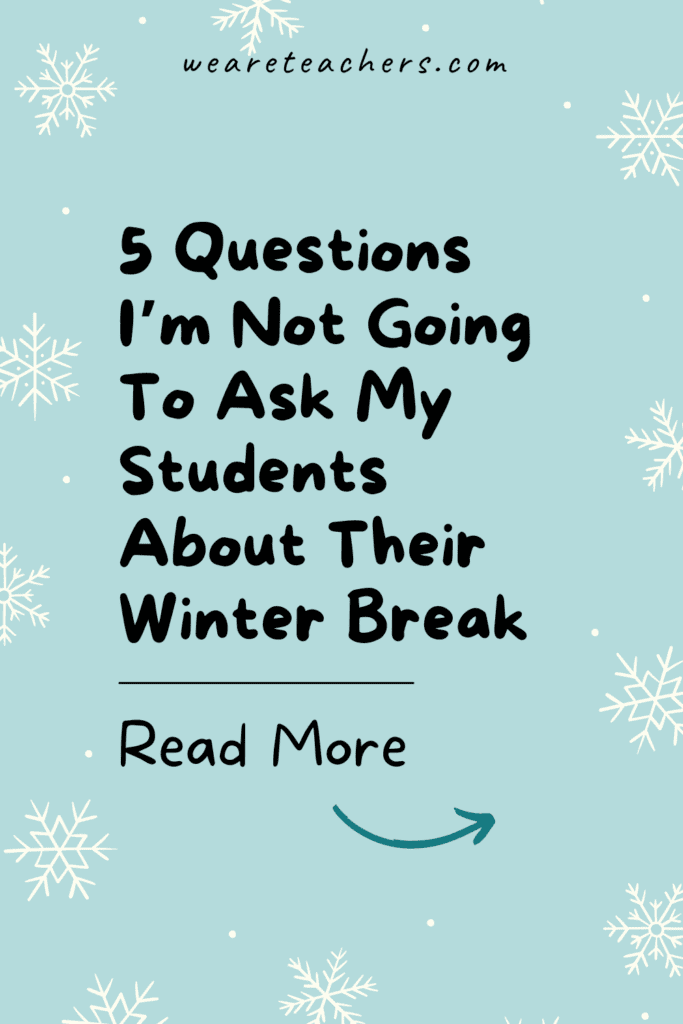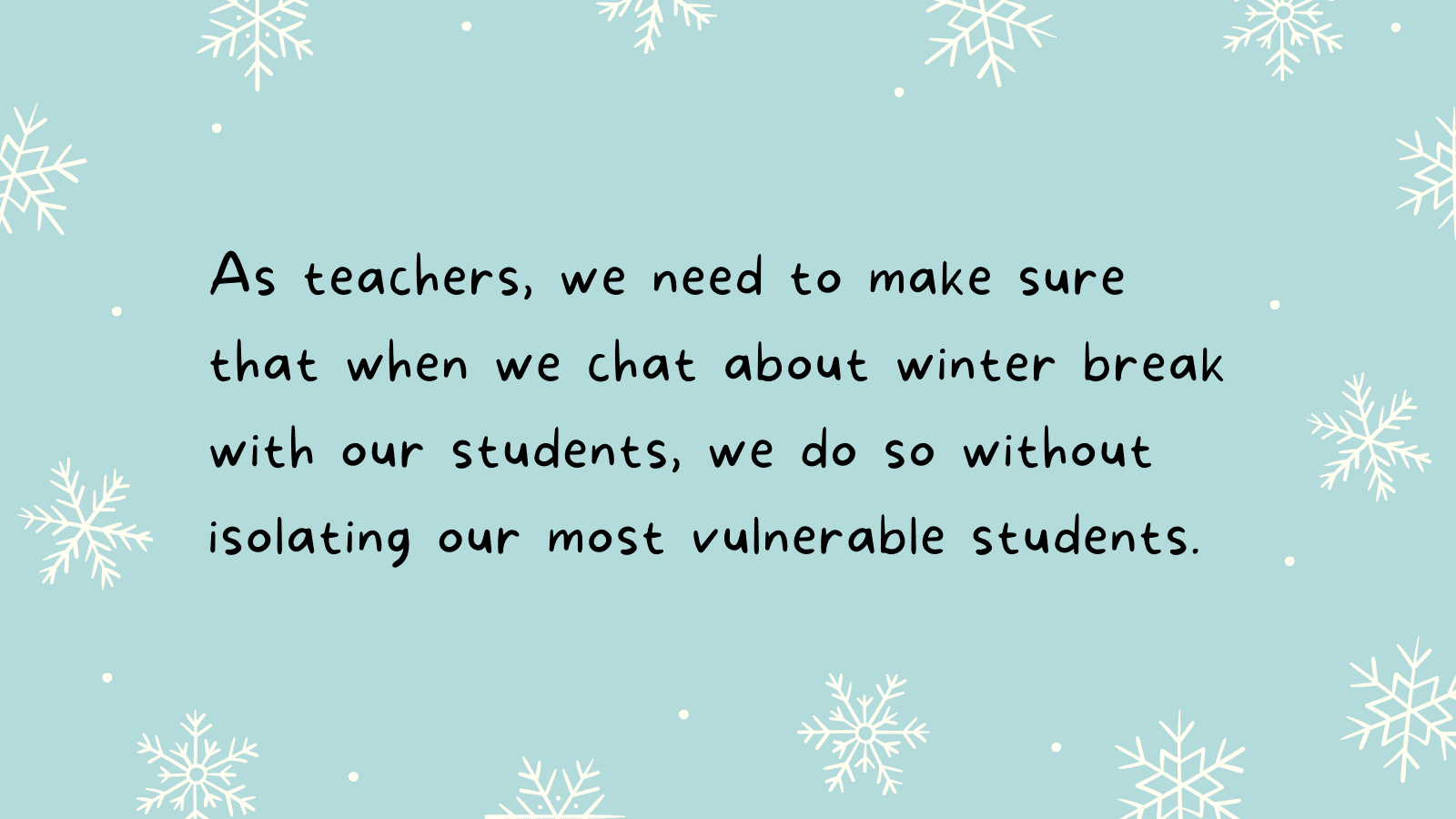One of the things I used to look forward to about heading back to school after winter break was chatting with my students about their vacations. As I learned more about students living with trauma or in poverty, however, I began to view those conversations through a different lens. Which of my students might have not participated during conversations about gifts because they didn’t receive any? Who may have stayed quiet when peers whined about winter break being over because they actually felt happier (or safer) at school? As teachers, we need to make sure that when we chat about winter break with our students, we do so without isolating our most vulnerable students.
With that in mind, here are five questions I won’t be asking my students when we go back to school after winter break and some suggestions for what to ask instead.
1. Instead of asking about gifts…
Of course, children who received presents are going to want to talk about them with their peers and their teacher. Not asking this question doesn’t mean not letting anyone talk about gifts in case one of their peers can’t participate, but rather it’s about creating a space where all students feel safe and valued when you head back to school after winter break.
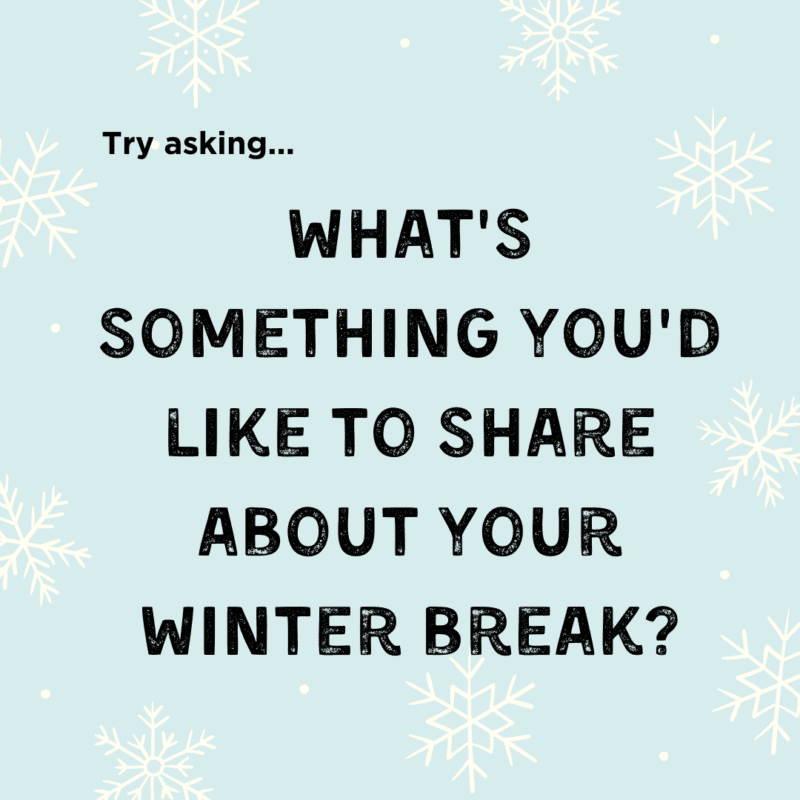
Asking them about winter break, in general, respects all your students. Students who had wonderful winter breaks can share their stories about presents, family, and adventures. Students who might have missed out on some of that can focus on different areas. Perhaps most importantly, it allows me as a teacher the opportunity to share something nice that happened during my winter break and maybe something challenging that happened too. This way, I’m modeling for my students that it’s OK for holidays and breaks to not be perfect and happy to be worth talking about with others.
2. Instead of asking about family…
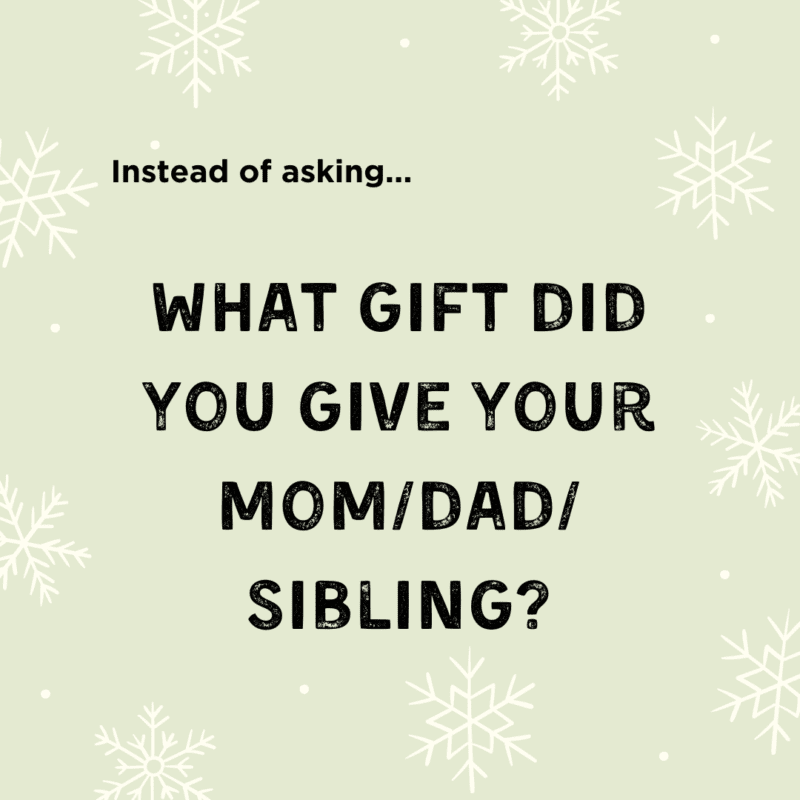
While this question will be a nice opportunity for some of your students to share not just the spirit of receiving gifts but giving them, for others, it is a minefield. Some might not have been able to afford gifts for their family. Others might not have family to give gifts to. And others might have family but not wanted to give them gifts for a variety of reasons.

Again, the point is never to stop students from sharing happy memories. These students’ experiences are important and should be respected. Instead, it’s about creating a space where all students’ experiences are respected and all students feel safe. Additionally, I like this question because it asks all students to try to focus on something positive in their lives. Some of our students’ home lives may make our hearts hurt, but as teachers, part of our job is giving them the resilience they may need to overcome some of these obstacles. Being able to see positives in life is a very valuable life skill!
3. Instead of asking about food…

This used to be one of my favorite questions because I was fascinated by how different students’ answers were. Some students had ham, others turkey, others couldn’t imagine how anyone could celebrate the season without their grandmother’s stuffed shells, macaroni and cheese, or Jell-O salad recipe. It was so fun to hear about everyone’s special traditions, but again, I think back to students who didn’t participate because, for them, there was no big holiday meal.
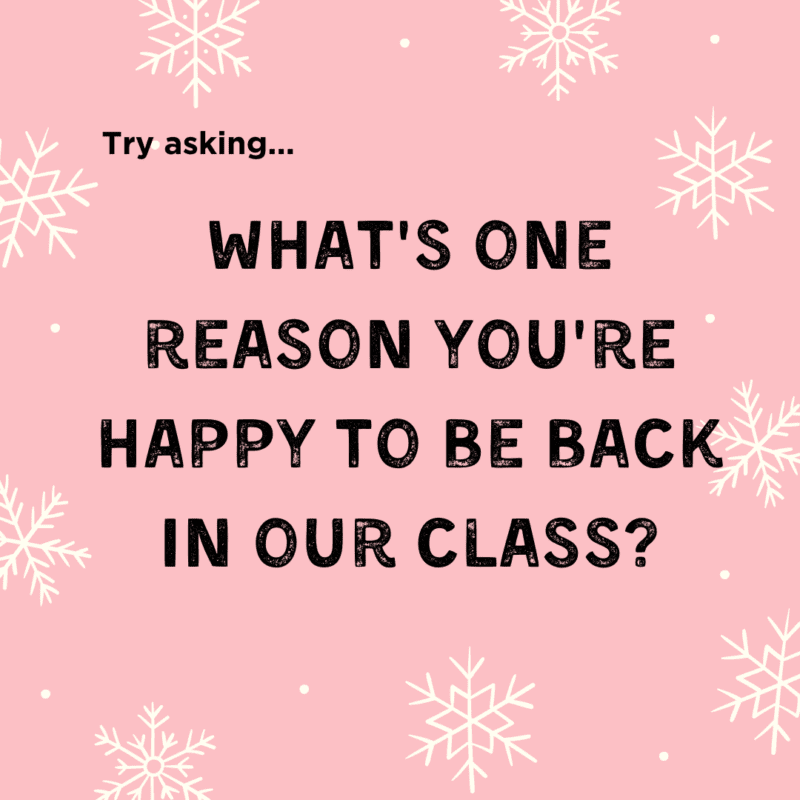
I know, I know, it’s cheesy. But I love this question. It helps students focus on being back and look forward to what we’ll do next. Although I always wished for just a few more days of afternoon naps and time with my family, I was also excited to see my students again. This question lets our students know we’re happy to see them and excited to keep learning, creating a safe space for them in our classrooms. This is important for all of our students, not just our students dealing with trauma.
4. Instead of asking specifics…
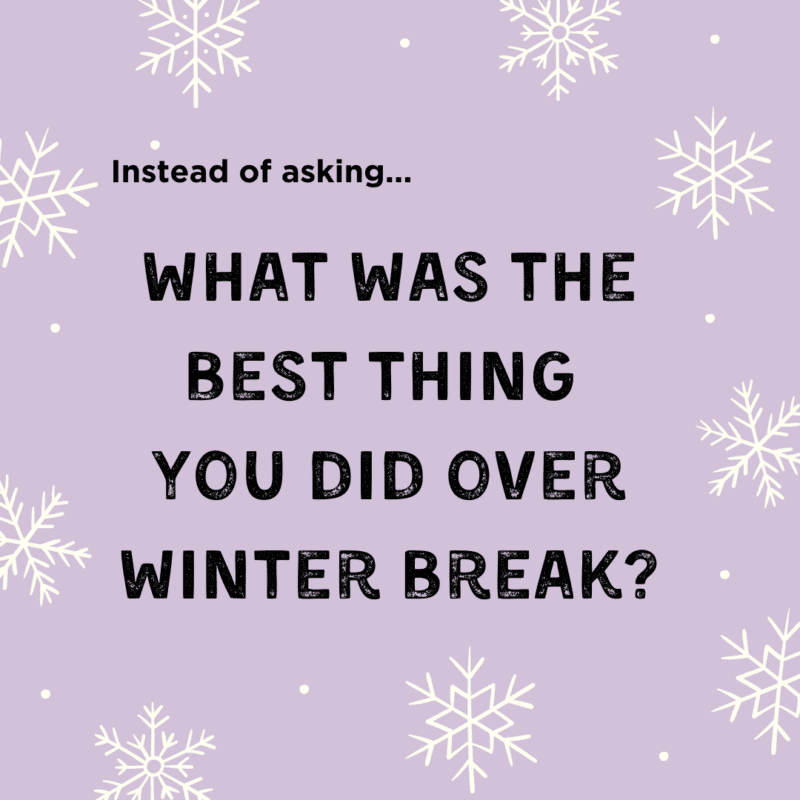
Although the most common answers I got to this question in the past were, “Sleep” and “Play video games.” I still think it could have put some students in an uncomfortable space. We know that some of our students go home to homes with food insecurity, with family conflict, and numerous other stressors. For these students, the best thing that happened to them might be heading back to school after winter break ended.
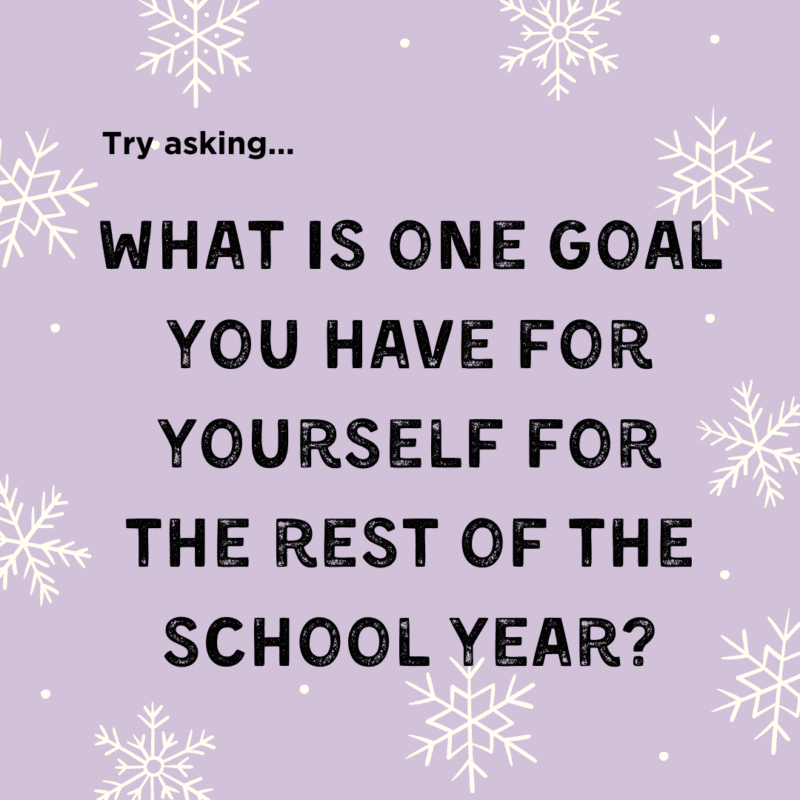
This is another lovely question for framing the end of winter break in a positive light. For students who may have struggled over the first months of school, this might be an opportunity for them to start fresh. Share your goal with the class and, if appropriate, let them know how they can help you achieve that goal. Then, you can ask how you can help them achieve theirs.
5. Instead of asking negatives…
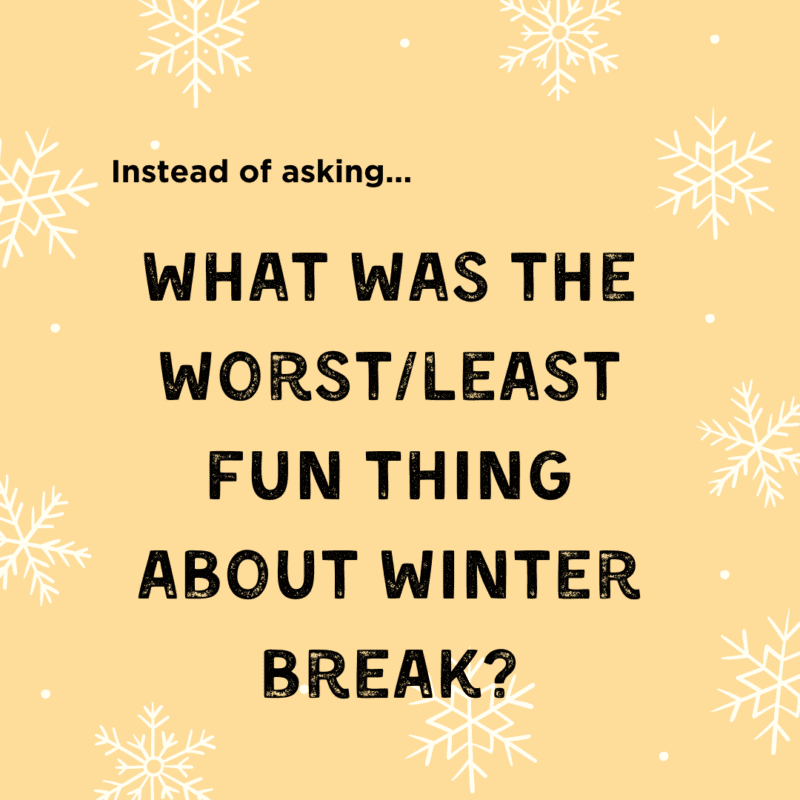
I asked this one too, and I wish I hadn’t. While the answers were often similar, “Having to come back to school” or “Being bored.” I still view the question differently now that I think more about the students who might have had a difficult time over winter break. If they survived a challenging break and are preparing mentally and emotionally to be back in class, the last thing they need is a question that asks them to choose the worst part of that tough time.
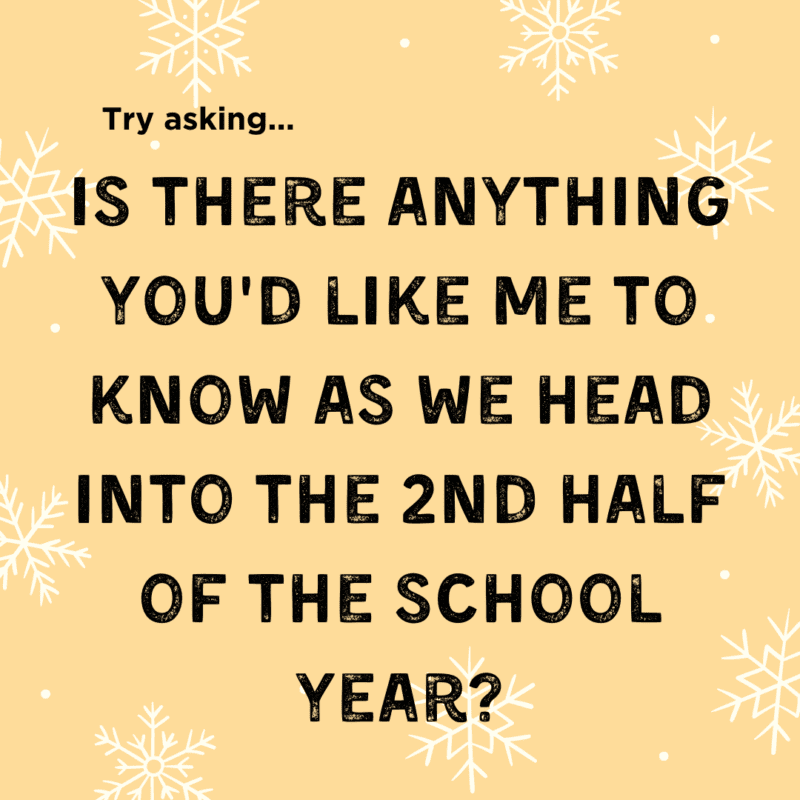
This question is always great as a writing prompt. Require all your students to answer the prompt, and make sure they all know that the responses won’t be shared with the class. While students always have the option to write things like, “Nope” or “I’m glad to see you!” it still leaves one more opportunity for a student who might need you to reach out.
Meghan and Kimberley talk about this article on YouTube:
How will you welcome your students back after winter break? Let us know in the comments.
Want more articles like this? Be sure to subscribe to our newsletter so you can get our latest picks.
